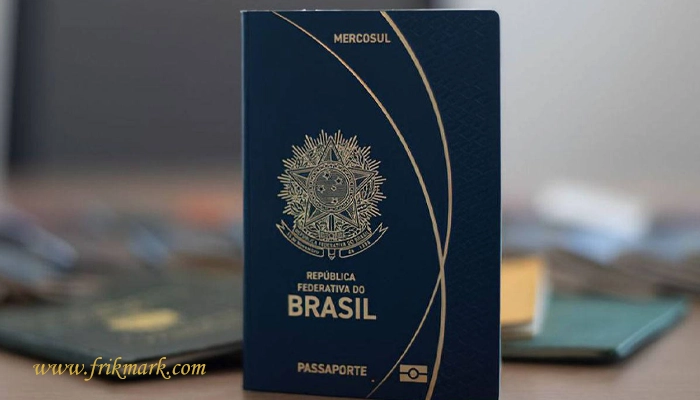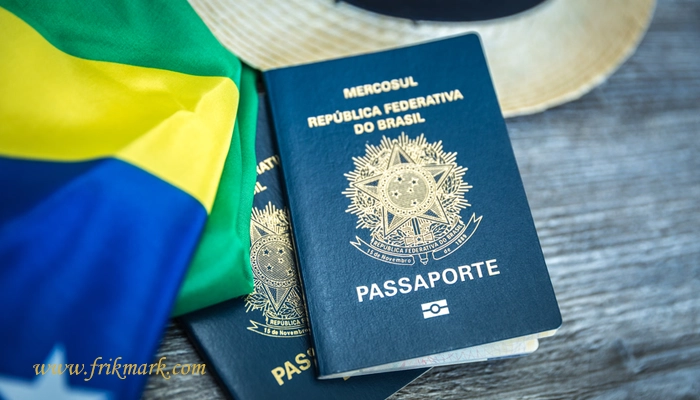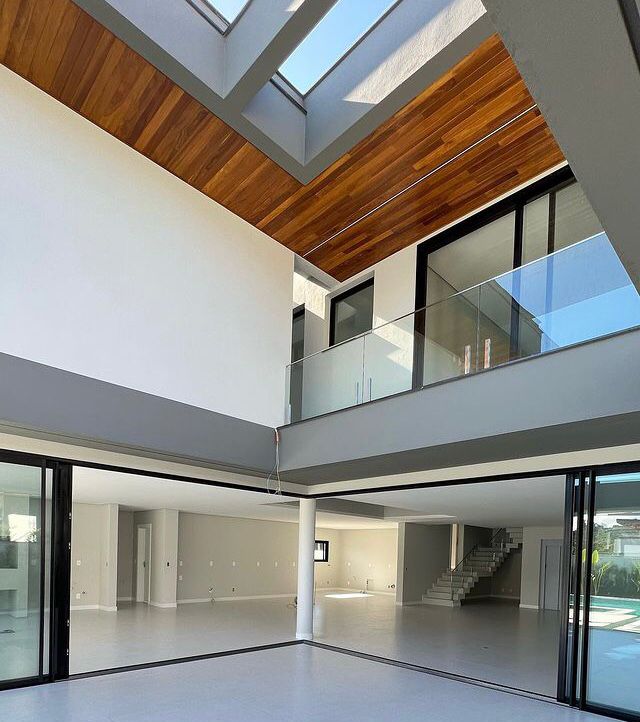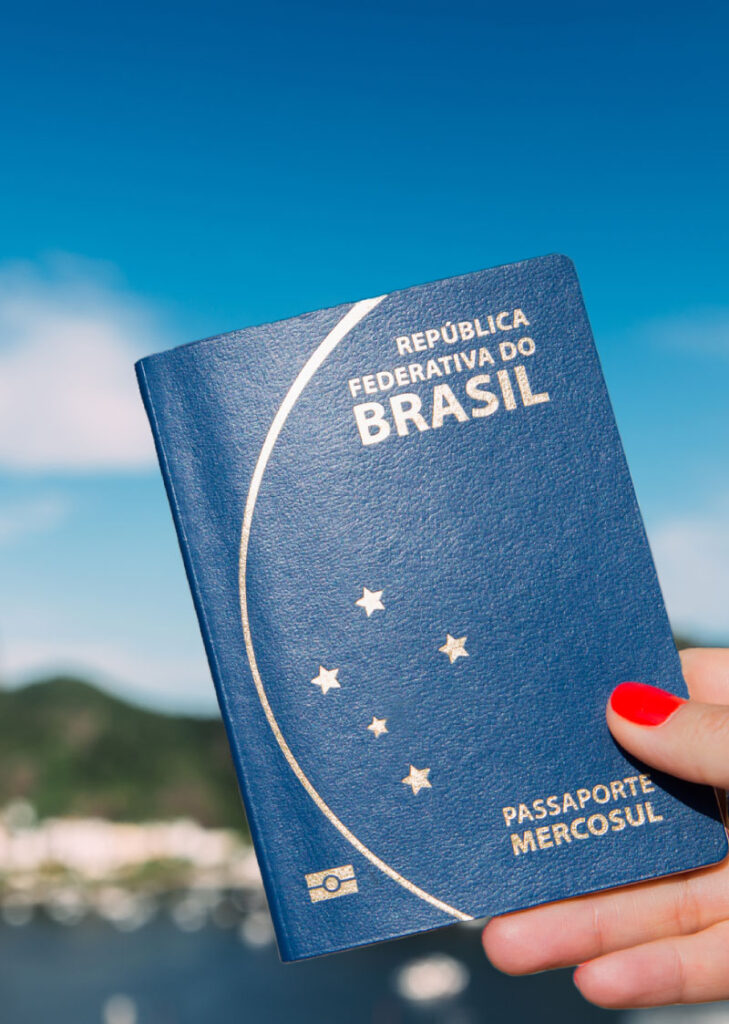Understanding the types of Brazilian visas is an important first step for those who plan to travel, immigrate, work, or study in this fascinating South American country. Since each type of visa has its own specific requirements and restrictions, understanding the types of Brazilian visas will help applicants choose the best option based on their personal goals and circumstances. In this article, we will provide a comprehensive review of the types of Brazilian visas to make the process of applying for and obtaining a visa easier for you.
Types of Brazilian visas
Brazil Tourist Visa
One of the most common and widely used types of Brazil visa is the tourist visa , which allows individuals to travel to the country for a limited period of time and enjoy the tourist and cultural attractions of Brazil. This type of visa is usually issued for a period of 30 to 90 days and can be extended in some cases, but holders of a Brazil tourist visa are not allowed to carry out work or study activities. For this reason, if your purpose of traveling to Brazil is simply to tour, visit relatives, or attend short-term events, a tourist visa is a good option.
To apply for this type of visa, applicants must prepare certain documents, the most important of which are an invitation letter from the host person or organization, a return ticket, financial documents proving sufficient financial means to cover the costs of travel and accommodation, as well as valid identity documents. Also, sometimes the Brazilian consulate requests that the applicant have valid travel insurance to cover the costs in case of medical problems during the trip.
Being fully aware of the requirements and documents required for a tourist visa, as one of the most important types of Brazilian visas , helps applicants to proceed with their application process smoothly and more quickly. Also, knowing the rules regarding the length of stay, extension, and exit conditions based on a tourist visa is very crucial to avoid fines or legal problems. Finally, given the changing conditions of immigration laws, it is better to be informed of the latest official and up-to-date information before applying for a visa so that your trip to Brazil can be carried out peacefully and without worries.
Brazil Work Visa
One of the most important types of Brazilian visas issued to people who intend to work legally in the country is a work visa . This visa is usually for those who have an official job offer from a Brazilian employer or company and wish to work legally and officially in Brazil. Obtaining this type of visa requires the submission of certain documents such as an employment contract, a letter of introduction from the employer, and sometimes a confirmation from the Brazilian Ministry of Labor, which indicates the legitimacy of the job and the need for foreign workers in the labor market.
One of the important features of a work visa is its validity period, which is usually issued for one or several years and can be extended depending on the employment contract and the individual’s circumstances. Work visa applicants must carefully go through the application process, because failure to provide complete documents or deficiencies in the file can result in the application being rejected or the process being prolonged. Also, with a work visa, applicants are usually allowed to bring their family with them, which is possible in the form of various types of Brazilian family visas.
Given the importance of the Brazilian labor market and the laws related to labor immigration, it is essential for those who plan to live and work in the country to be aware of all the conditions, restrictions, and opportunities available in the different types of Brazilian work visas. Also, keep in mind that some jobs may require specialized licenses or additional approvals from the relevant authorities, which should be reviewed before proceeding.
Brazil Student Visa
Another important and popular type of visa for Brazil is the student visa , which allows foreign students to enroll in universities, educational institutions, and specialized courses in the country and reside legally. This type of visa is usually issued for long-term study courses, and the applicant must have an official acceptance from an accredited educational institution in Brazil. The documents required to apply for a student visa include a letter of acceptance from the university, proof of financial means to pay tuition and living expenses in Brazil , valid health insurance, and sometimes language certificates.
Also read: The language of the people of Brazil
With a Brazilian student visa , students can benefit from a variety of educational and cultural opportunities, and are also allowed to work part-time during their studies, subject to restrictions set forth in immigration laws. This type of visa is usually renewable, and after completing their studies, students can in some cases apply for a work visa or permanent residence, which is part of the broader Brazilian visa process.
Understanding the requirements and documents required for a student visa is one of the most important steps to successfully obtaining this type of visa. It is also best for applicants to contact universities and higher education institutions in Brazil and benefit from their advisory support to make the application and residency process easier.
Also read: Names of cities in Brazil
Brazil Investor Visa
One of the most attractive and popular options among the types of Brazilian visas is the investment visa , which is granted to applicants who intend to obtain residency in the country by investing in economic projects or businesses in Brazil. This type of visa is an ideal opportunity for people who want to live in Brazil and benefit from its economic and business opportunities.
To obtain a Brazilian investment visa , you usually need to legally invest a certain amount (which may vary depending on the type of investment) in one of the authorized economic sectors. This investment can include starting a business, purchasing high-value real estate, or participating in public or private economic projects. Also, complete documentation of your financial situation, business plan, and personal history must be provided in order for the application to be fully reviewed.
The benefits of this visa include the possibility of obtaining permanent residency after a period of time, facilitating access to banking services, and legal rights for companions. However, it is important to be fully aware of the rules and conditions associated with this type of visa, as the investment and visa application process can be complex and require careful legal and economic advice.
Finally, the Brazilian investment visa , as one of the types of Brazilian visas, is a golden opportunity for people who want to, in addition to immigrating, engage in economic activity in a growing and diverse market and benefit from the benefits of residing in this country.
Also read: Where is the capital of Brazil?
Brazil Family Visa
Among the types of Brazilian visas , the family visa plays a very important role in maintaining the unity of immigrant families and allows family members of residents or holders of a valid visa to immigrate and reside in Brazil. This type of visa is usually issued to spouses, minor children, parents or other close relatives of individuals and there are special requirements for proving family relationship and financial support.
To obtain a Brazil family visa , it is necessary to provide documents such as a marriage certificate, birth certificates of family members and financial documents of the main applicant. In some cases, an invitation or official sponsorship from a person residing in Brazil is also required. This type of visa can be issued for a long period or even for permanent residence, depending on the type of family relationship and the applicant’s circumstances.
One of the important advantages of a family visa in the Brazilian visa category is the possibility for family members to benefit from Brazilian health, educational and social services, which facilitates their integration into society. Also, people with this visa can apply for permanent residence or citizenship after a while.
Knowing the details and rules related to family visas will help applicants go through the application process smoothly and reap the full benefits of this type of visa. For this reason, it is recommended to consult with immigration lawyers and official counseling centers before applying to ensure that the family immigration process is smooth and legal.
Also read: Customs clearance in Brazil
Diplomatic and Official Visa for Brazil
Another important category of Brazilian visas is the diplomatic and official visa , which is issued to government officials, diplomats, employees of official missions and international organizations. This type of visa has specific conditions and allows its holders to reside in Brazil during their official missions and benefit from some special exemptions and facilities.
To apply for a Brazilian diplomatic visa , certain documents must be submitted, such as an official letter of introduction from the host government or relevant organization, a letter of mission, and valid identification documents. This visa is usually issued for the duration of the mission and is renewable. Holders of this visa usually enjoy diplomatic privileges, such as exemption from certain taxes and regulations, which is part of the distinction between Brazilian visa types in this area.
Familiarity with the administrative procedures and documents required for this type of visa is of great importance, especially for representatives of foreign countries and employees of international organizations who intend to work legally in Brazil. Also, this type of visa is part of the Brazilian government’s policies to facilitate international and diplomatic cooperation.
Brazil Digital Nomad Visa
One of the newest and most advanced types of Brazilian visas is the Digital Nomad Visa , which allows remote workers to reside in Brazil for a specified period of time and benefit from the country’s facilities. With the expansion of technology and changing working practices, Brazil has designed this type of visa so that a global workforce can live in the country easily and without geographical restrictions.
The Brazilian Digital Nomad Visa is typically issued to those who have a steady income from abroad and do not need to work in person in Brazil. Applicants for this type of visa must provide documents such as proof of regular income, a work or freelance contract, health insurance, and a valid passport. The visa allows applicants to reside in Brazil for up to one year, and is usually renewable.
One of the main advantages of this visa among the different types of Brazilian visas is that it facilitates the immigration process for creative and professional individuals who want to live in a dynamic environment and benefit from Brazil’s rich culture, without experiencing the usual restrictions of work or study immigration. This type of visa also provides access to banking services, insurance, and public facilities for digital nomads.
Given the constant changes in immigration laws and the growing acceptance of the digital nomad lifestyle, familiarity with the requirements and documents required for this visa within the framework of the types of Brazilian visas is of particular importance and can provide new opportunities for immigration and living in Brazil.
Important points when applying for various types of Brazilian visas

In the process of obtaining each type of Brazilian visa , it is very important to pay attention to key points and follow the legal procedures. The first point is that before applying, you must carefully choose the type of visa that suits the purpose of your trip, because each type of Brazilian visa has its own conditions and documents, and an incorrect application can lead to the rejection of the file.
Another important point is to provide complete and valid documents; documents such as a passport with the minimum required validity, completed application forms, financial documents, invitations and any supporting documents that vary depending on the type of visa. Keep in mind that missing documents or incomplete information may lead to a longer review process or even rejection of the application.
It is also important to stay up to date with Brazilian immigration laws, as regulations regarding Brazilian visa types may change. Therefore, it is best to use official sources from the Brazilian embassy or consulate, or experienced consultants, to get the latest information before applying.
Another thing is to time your application and documents properly. Some visa types may require more time to process, so it is important to plan your trip and follow up carefully. Ultimately, patience and persistence are the keys to success in obtaining any type of Brazilian visa.
Frequently Asked Questions about Brazil Visa Types
1. What are the types of Brazilian visas?
Types of Brazilian visas include tourist, work, study, investment, family, diplomatic, and digital nomad visas, each of which has its own specific requirements and documents.
2. What documents do I need to obtain a Brazilian tourist visa?
A Brazilian tourist visa usually requires documents such as a valid passport, round-trip ticket, financial documents, and in some cases, an invitation letter.
3. How long is a Brazilian work visa valid for?
The validity period of a work visa in Brazil is usually one to several years and can be extended depending on the work contract.
4. Can I work in Brazil with a student visa?
A Brazilian student visa usually allows part-time work with certain restrictions, but full-time work is not permitted.
5. What are the benefits of a Brazilian investment visa?
The Brazilian investment visa provides the possibility of permanent residence after a period of time, facilitation in banking matters, and legal rights for companions.
6. Does the Brazil family visa apply to all family members?
Family visas are usually issued to spouses, minor children, and parents and require documents proving family relationships.
7. What is the Brazilian Digital Nomad Visa and what are its conditions?
The Brazilian Digital Nomad Visa allows remote workers to reside in Brazil for a specified period of time, upon providing proof of income, health insurance, and an employment contract.
8. How can I find out about the latest rules for Brazilian visa types?
To learn about the latest rules for Brazilian visa types, it is best to visit the official website of the Brazilian embassy or contact reputable immigration consultants.
Conclusion
In this article, we will look at the most important types of Brazilian visas , including tourist, work, study, investment, family, diplomatic, and digital nomad visas. Each of these visas has its own requirements, documents, and rules that are crucial to successfully applying for and residing in Brazil.
Given the diversity and complexity of immigration laws, it is recommended that you carefully select the appropriate visa type for your travel purpose and prepare the necessary documents completely and accurately before applying for a Brazilian visa. Using official sources and reputable legal advisors can make the visa process simpler and faster.
Finally, Brazil, as one of the most important countries in Latin America, offers many opportunities for tourism, work, education, and investment, and the types of Brazilian visas allow applicants to live and work in the country with ease. Being fully familiar with these visas and following important points in the application is the key to success on the path to immigration to Brazil.






